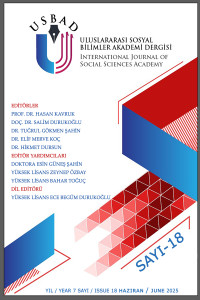Research Articles
Issue Editorial Board
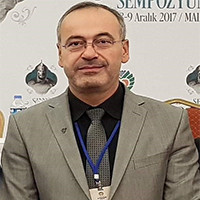
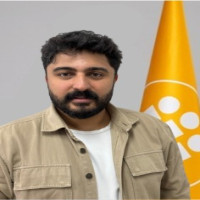





 0000-0001-7298-1942
0000-0001-7298-1942

Issue Reviewers
 0000-0003-4999-9663
0000-0003-4999-9663


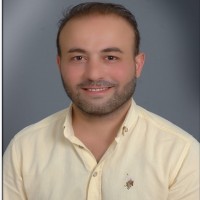
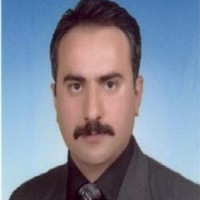

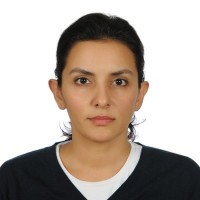


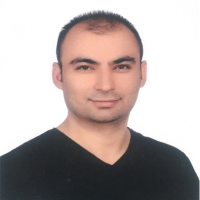
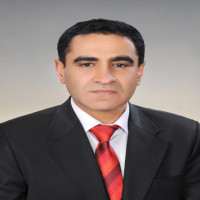


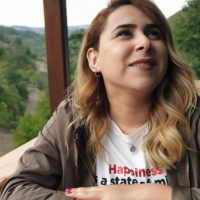

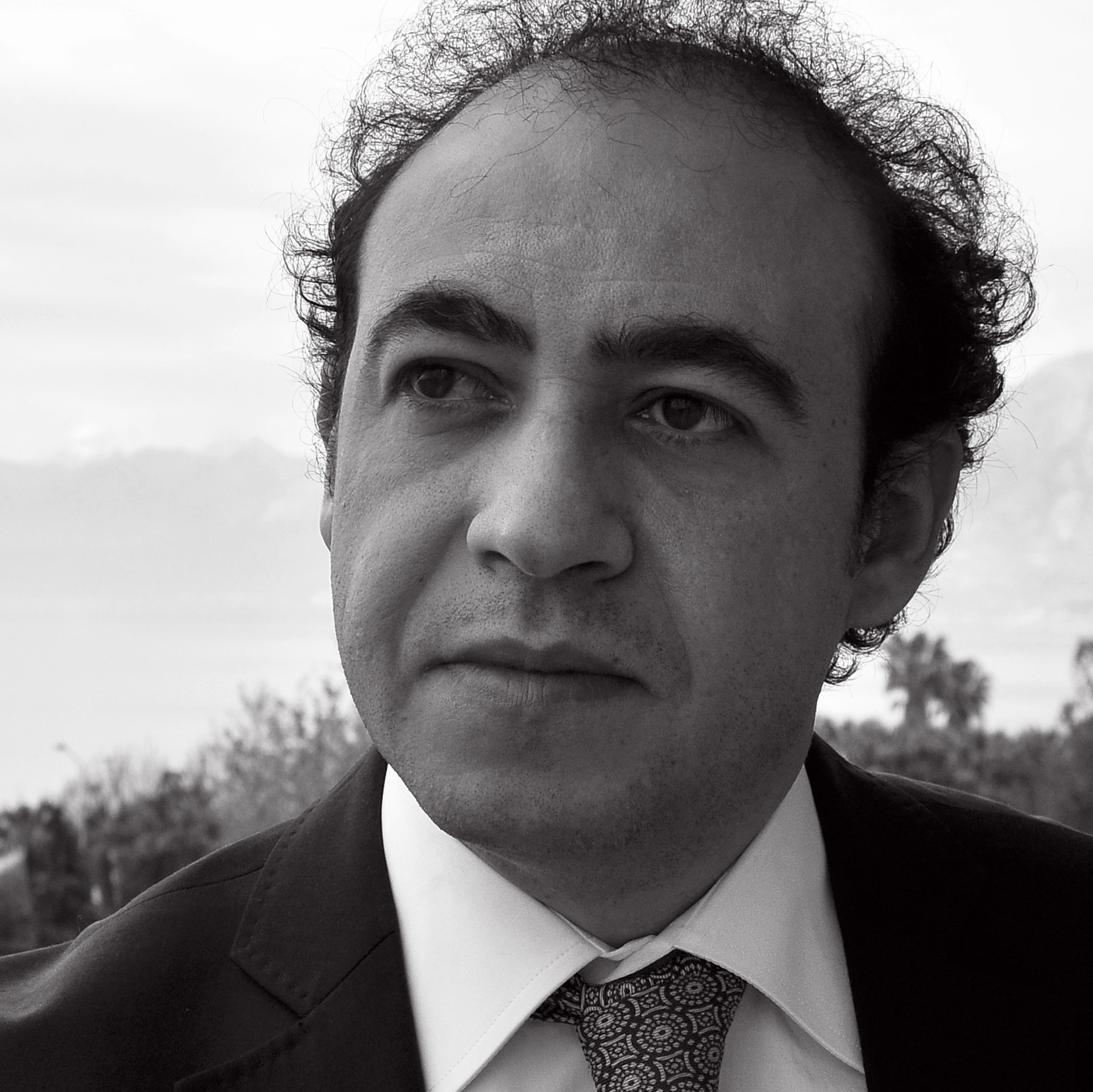

Aim & Scope
1. To be a journal that contributes to science and publishes academic researches.
2. To create qualified references in the field of social sciences and educational sciences, especially in the field of Turkology.
3. to offer the world an alternative to qualified academic e-journal publishing mainly in Turkey and academics in line with expectations.
4. Turcology, literature, history, social sciences and education sciences fields by or from Turkey to the world, to move to an international level from the national characteristics of this branch of science.
5. With Open Access System feature to be searched by more databases and indexes, while providing easy and unlimited access to scientists and readers.
6. System of open access journals, databases, indexes and citation of articles with DOI number to raise rates by increasing the prevalence of Turkey and the world.
7. To prepare the opportunity and environment for making original publications in the world of science by accepting and publishing the articles to be published through plagiarism programs.
INTERNATIONAL ACADEMY JOURNAL OF SOCIAL SCIENCES (USBAD) is an international refereed, e-journal that publishes four times a year and includes articles covering all fields of Turkology, literature, history, social sciences and educational sciences. It is published electronically via Dergipark.
The responsibility of all articles published in the journal of International Journal of Social Sciences (USBAD) in terms of language, science and law belongs to its authors and the rights of publication belongs to USBAD. Published articles may not be published or reproduced in whole or in any way without the written permission of the publisher. The Editorial Board and editors are free to publish or not to publish the articles sent to the journal. Submitted articles are not refundable.
Author Guidelines
INTERNATIONAL JOURNAL OF SOCIAL SCIENCES (USBAD) PUBLICATION PRINCIPLES
General Principles
1 INTERNATIONAL ACADEMY JOURNAL OF SOCIAL SCIENCES (USBAD) Journal is an international refereed journal. It is published 4 issues a year, March, June, September and December. Special or additional issues may be published when necessary. The journal follows the Open Access Policy.
2 INTERNATIONAL JOURNAL OF SOCIAL SCIENCES (USBAD) is a journal that publishes articles on Turkology, literature, history, social sciences and educational sciences. Within this framework, it also publishes original scientific articles, translations, translation-writings, interviews, books, articles, symposiums, panel and other scientific activities and necrology texts. In addition, symposium proceedings may be published, provided that the venue, meeting and date are presented and not published elsewhere. However, any responsibility that may arise from this publication activity rests with the author.
3 Articles submitted to the Journal of International Journal of Social Sciences (USBAD) should not have been published in any media before, and when it is added to the system, another publication should not participate in the publication evaluation process.
4. International Journal of Social Sciences Academy (USBAD) for the publication of those who want to send a manuscript, https://dergipark.org.tr/usbad at the address of the Article Tracking System as a member must send here.
5. The inclusion of any manuscript in the electronic system of the Journal of the International Journal of Social Sciences (USBAD) is accepted as an application for publication and the evaluation process of the manuscript begins.
6. All the processes from the application process to the publication of the manuscript are carried out electronically.
7. The publication and publication rights of the manuscripts sent to the International Journal of Social Sciences (USBAD) for the publication are transferred to the journal. These manuscripts may not be published, reproduced or used in any other publication without permission from the journal management. INTERNATIONAL JOURNAL OF SOCIAL SCIENCES ACADEMY (USBAD) Journal can publish its published texts in various media.
8. Any legal, legal, economic and ethical responsibility that may arise from the articles submitted to the Journal of the International Journal of Social Sciences (USBAD) belongs to the authors, even if the article has been published. The journal accepts no liability.
9th INTERNATIONAL JOURNAL OF SOCIAL SCIENCES (USBAD) Journal is published in Turkish, English, German, French, Russian, Arabic, Persian and so on. Articles from languages are also evaluated and published if it is deemed appropriate to be published by the referees.
Evaluation process
10. International Journal of Social Sciences Academy (USBAD) Journal's system is not included in the manuscript or any references to the identity of the author. The information of the authors of the manuscripts that are deemed appropriate to be published after the referee process is added by the editors at the publication stage.
11. Every article uploaded to the journal of the International Journal of Social Sciences (USBAD) is first evaluated by the editor or assistant editors for their compliance with the principles of writing and publication. As a result of this evaluation, if there are corrections to be made by the author, the manuscript is returned to the author by requesting correction.
12. Articles that do not comply with the writing principles are not sent to the referee.
13. Articles deemed suitable for evaluation in terms of writing and publication principles are directed to the referees. At least two referees are appointed for the evaluation of each manuscript that is approved by the editor. The referees determined for the manuscripts that are included in the evaluation process are selected among the persons who have expertise in the field and department represented by the manuscript.
14. The names of referees and authors are mutually confidential.
15. The evaluation period of the manuscripts sent to the referees is maximum 15 days. The referee who does not make an evaluation within 15 days is given an additional 7 days and a reminder mail is sent. At the end of this process, a new arbitrator is appointed for the article not reported.
16. The article which receives two positive referee reports from the field evaluation is entitled to be published. The manuscript receiving a positive and negative referee report is sent to a third referee and it is determined in accordance with the third referee's report whether or not the manuscript is published.
17. The referees may wish to see the manuscript they wish to correct once more before being published. If this request is stated in the report, the corrected version of the text is sent to the referee by the editor.
18. The authors may object to the arbitrator's report in a reasonable manner and with convincing data. The objections are reviewed by the journal management and, if deemed appropriate, the opinions of a different arbitrator (or referees) may be consulted.
19th INTERNATIONAL JOURNAL OF SOCIAL SCIENCES (USBAD)The period of the evaluation process of the articles added to the ik system can be followed by the authors using their own membership information. The arbitrator process should be monitored meticulously and, as the system is entitled to change only once, any arbitrator assessments should be finalized and reports must be entered into the system for possible changes.
20. Journal editors carefully follow the corrections given by the referees. Accordingly, editors may decide whether or not to publish a manuscript.
Writing Principles
21. Download the template in the "Word" format under the "Article Template" header from the main page of Usbad International Social Sciences Academy Journal (https://dergipark.org.tr/tr/pub/usbad). Prepare your article file by organizing your article according to this template. If there are issues not included in the template, apply the items below.
22. At the beginning of the original articles sent to the Journal of International Journal of Social Sciences Academy (USBAD) for publication, Turkish language (Abstract), English (Abstract) and 3-5 word Turkish (Keywords) consisting of maximum 200 words, English (Keywords) and Turkish and English titles should be included.
23. MLA or preferably APA should be used as citation system in the article.
24. At the end of the text, a list of sources used in the study is given under the title REFERENCES. This bibliography, which lists the references used in the study, is prepared alphabetically according to the author surname order.
25. In accordance with the template, articles are given headers, footers, and page numbers.
26. For spelling and punctuation marks, the spelling and spelling guide of TDK is taken aside, except for the differences related to the content of the text.
27. In studies where a special font (font) not included in Microsoft Word program is used, font file is added to the system along with the article.
28. The page layout of the articles to be added to the system must be made by the author and in accordance with the following values:
Font: Verdana
Margins: Bottom-Top-Right-Left 3 cm
Font Size: 12 in title, 12 in text, 11 in abstracts, 10 points in footer-footer and footnote
Paragraph Spacing: First 0 pt - then 6 pk
Paragraph Indent: First Line in Text 1 cm
Line Spacing: 1.15 in text, Single in footnotes
29. Figures, tables and photographs should not extend beyond the writing area. If necessary, this condition can be met with font size and / or line spacing.
30. Figure and Table titles that should be prepared in accordance with the 11-point Verdana character must be numbered (Table 1, such as Table 2).
31. Numbers and titles; The figure should be written under the table and photographs with 10 font size.
32. Our journal requires "Extended Abstract-Extended Abstract" for the articles to be published, as required by the applications made to be scanned in new and important indexes. Details are included in the article template.
Note: Articles that do not comply with the Editorial Principles of the Journal of International Social Sciences Journal (USBAD) are not taken into consideration.
Ethical Principles and Publication Policy
PUBLICATION ETHICS
The International Academy of Social Sciences Journal aims to adhere to the guidelines and core practices set forth by various organizations, including the Commission on Publication Ethics (COPE) guidelines and the Principles for Transparency and Best Practice in Scholarly Publishing (COPE, DOAJ, OASPA, WAME joint statement). These guidelines and recommendations are designed to promote transparency, integrity and best practices in scholarly publishing.
By adhering to these standards, the journal aims to ensure that the research it publishes is of high quality and meets the ethical standards of the scientific community.
PUBLICATION PRINCIPLES
- With the amendment made in the TR Index Journal Evaluation Criteria in 2020, “Ethics Committee Approval” is requested for articles in all disciplines, including Social Sciences. (See: https://trdizin.gov.tr/about#applicationAndCriterias TR Index Journal Evaluation Criteria Article 8).
- Before submitting your work to our journal, the “Cover Letter” file prepared by our journal should be uploaded to the system by examining whether your work is suitable for the publication criteria of our journal.
- In order to initiate the necessary processes of the studies sent to the International Academy of Social Sciences Journal, the “Copyright Form” prepared by our journal must be uploaded to the system with wet signature.
- Only one article of an author can be published in the same year (same volume), regardless of author ranking.
- Articles submitted without following the journal template will be rejected (returned) by the journal board.
- A study will not be published in the first issue following the submission date, even if the evaluation process is completed. If it meets all the conditions, it will be published in the next issue.
- A maximum of 25 (twenty-five) studies will be published in one issue, taking into account the date of submission to the journal.
- Maximum 20% of the total studies published in one issue can be from researchers working at İnönü University.
- Articles are published in Turkish and English. Authors are expected to submit their manuscripts in full text in Turkish for the peer review process. Studies accepted for publication are sent to the journal in both Turkish and English full text. “Proofreading Certificate” (after acceptance) is required for the English full text of the manuscript.
Ethics Committee Approval and Informed Consent
All research involving human subjects must be reviewed and approved by an ethics committee (e.g. IRB) before it is conducted. The name of the ethics committee, approval number and date must be included in the Methods section of the manuscript. Authors may also be asked to provide a copy of the approval.
If the study is exempt from ethics approval, authors must submit a statement from the ethics committee explaining the exemption. If a manuscript is submitted without ethical approval, the journal will follow COPE's guidelines for assessing ethical concerns. Articles without ethical approval may be rejected if the topic is considered important.
Details of informed consent should be included in the Methods section, along with information about the research process.
- For studies involving human subjects, the authors must confirm that written informed consent has been obtained from all participants and the consent form must be retained by the investigators. For studies involving children under the age of eighteen, consent must be obtained from a parent or guardian. In surveys or interviews, participants' consent for data use should also be confirmed. Personal information should be de-identified unless explicit consent for naming is given.
- Authors are responsible for protecting the anonymity and confidentiality of participants, especially in the case of photographs. Signed releases must be obtained for any images, consent for publication must be provided, and any conditions must be specified. This approval should be stated in the Methods section.
Plagiarism and Ethical Violations
All submissions are subjected to multiple scans using similarity detection software during the peer review and/or production processes. When citing previous work, it must be ensured that all material is properly referenced. Copying text, tables or images from any source (journal articles, books, theses, electronic media, etc.) and presenting them as one's own is considered plagiarism, even if a reference is given. Listing the source in the ‘References’ section does not exempt authors from responsibility for plagiarism.
Authors are strongly encouraged to avoid the following instances of plagiarism or ethical violations:
- Citation Manipulation: Inflating citation counts through self-citation, over-citation of the same journal, or citation stacking is a practice that distorts academic recognition.
- Self-Plagiarism (Text Recycling): It involves reusing passages or sentences from an author's previous work without proper attribution and constitutes a form of plagiarism.
- Salami Slicing: The unethical practice of publishing multiple articles from a single study using the same data set, hypotheses and methods.
- Data Fabrication: The creation of fake data that is not supported by actual research or experiments is considered a serious breach of research integrity.
- Data Manipulation/Falsification: Involves altering data, such as changing images or removing outliers, to mislead or misrepresent findings.
In cases of suspicion of ethical violations such as plagiarism, citation manipulation or data falsification, the Editorial Board will follow COPE (Commission on Publication Ethics) guidelines to ensure that suspicions are addressed in a fair, transparent and consistent manner.
All articles submitted to Usbad International Academy of Social Sciences Journal are scanned by https://intihal.net/ software before publication. The similarity rate should be 20% for original articles and 25% for articles produced from graduate theses. Articles below the similarity rate are accepted for publication. If plagiarism or unethical behavior is detected, the article will be rejected for publication.
OPEN ACCESS POLICY
All articles published in the International Academy of Social Sciences Journal can be permanently accessed online without any charge and without any registration requirement. While protecting the copyrights of their work, authors allow third parties to share, reproduce and distribute content in accordance with the journal's Copyright and Ethics policy.
All published content will be licensed under the Creative Commons Attribution-NonCommercial 4.0 International License (CC BY-NC 4.0), which permits non-commercial use, distribution, and modification, provided the original source is properly attributed.
All journal content is freely accessible at https://dergipark.org.tr/tr/pub/usbad.
COPYRIGHT POLICY
A Copyright Agreement and Authorship Contribution Form must be submitted with articles submitted to the International Academy of Social Sciences Journal. By signing this form, authors protect the copyright of their work and if the article is accepted for publication by the International Academy of Social Sciences Journal, the article will be licensed under the Creative Commons Attribution-NonCommercial 4.0 International License (CC BY-NC 4.0). This license allows users to share, adapt, reproduce, and distribute the content of the journal for non-commercial purposes, provided that the author and the journal are properly attributed.
ADVERTISING POLICY
International Journal of Academy of Social Sciences accepts digital advertisements on its website, provided they are approved by the Editorial Board and management. All advertisements must be clearly labeled as such. Advertisers have no influence on editorial decisions or advertising policies.
For advertising requests, please contact usbaddergi@gmail.com.
International Journal of Academy of Social Sciences conducts a rigorous and transparent double anonymized peer review process to ensure that academic integrity is maintained to the highest standards.
Articles are subjected to this process in which both authors and reviewers remain anonymous to each other. Each manuscript is evaluated by at least two independent external reviewers who are experts in the relevant field. Authors can suggest potential reviewers, but the final selection is made by the editor and the editor is not obliged to follow the author's suggestions.
Confidentiality is essential throughout the review process and reviewers may only share the manuscript with the editor's permission. Reviewers provide timely, impartial, evidence-based and constructive feedback to improve the quality of the manuscript. Suspected instances of research misconduct should be reported confidentially to the editor to protect the integrity of the process. The journal ensures transparency by sharing information about the review process, selection criteria and appeals procedure, and by publishing key data such as acceptance rates and publication times. The final decision to accept, revise or reject an article is made by the Editor-in-Chief, taking into account the recommendations of the Area Editors. Reviewers must disclose any potential conflicts of interest before accepting an invitation to review. All communications between editors and reviewers are confidential.
Articles submitted by members of the editorial board are reviewed by external editors to ensure impartiality, and these external editors must disclose any conflicts of interest. If the peer review process deviates from standard procedures, the type of review is indicated in the manuscript to ensure transparency and accountability.
REVISION DETAILS
Manuscripts requiring minor revision or major revision are responded to by the Editor-in-Chief with a decision letter including comments from reviewers and editors, and receive a deadline for resubmission. Authors must submit a revised manuscript and a detailed “Response to Reviewers” document addressing each comment individually. The response should explain the revisions made and indicate the relevant line numbers in the manuscript.
An annotated version of the manuscript highlighting the changes should also be submitted. Revised manuscripts must be submitted by the date specified in the decision letter. Failure to meet the deadline may result in rejection of the revision. If additional time is needed, authors should request an extension before the original deadline expires.
AUTHORSHIP CRITERIA
Authors of submissions reporting research findings must meet all four criteria set by the International Committee of Medical Journal Editors (ICMJE):
1. Significant contribution to the conception or design of the study, or to the acquisition, analysis or interpretation of the data;
2. Drafting the manuscript or critically reviewing it for important intellectual content;
3. Approval of the final version for publication;
4. agreeing to be responsible for all aspects of the work, ensuring that questions about the accuracy or completeness of any part are appropriately investigated and resolved.
Authors should determine who is eligible for authorship and in what order authors will be listed before submitting their manuscript. The editors of the International Journal of Academy of Social Sciences do not resolve authorship disputes. Any changes to the number or order of authors after initial submission must be explained in writing to the Editor-in-Chief. The editors reserve the right to refer any authorship irregularities to the research officer at the first or corresponding author's institution or employer, or to the appropriate academic ethics authorities.
Authors may use CRediT (Taxonomy of Contributor Roles) to provide information about individual contributions at the time of submission.
Conflict of Interest Statement
Any financial or non-financial conflicts of interest, including relationships with editorial associations, commercial editing companies, medical communications companies, or other organizations relevant to the submission, should be disclosed at the end of the manuscript, just before the References section.
Declaration of Financial Support
All sources of funding should be indicated at the end of the manuscript. Authors should indicate the role, if any, of the study sponsor(s) in the study design, data collection, analysis, interpretation, report writing, and decision to submit the manuscript for publication. If the funding source did not contribute to these areas, the authors should make this clear.
The Role of Artificial Intelligence (AI) in the Article Preparation Process
The International Academy of Social Sciences Journal follows the Commission on Publication Ethics (COPE) guidelines on the use of artificial intelligence (AI) and AI-enabled technologies in article preparation. Authorship requires responsibilities that only humans can fulfill, and authors are responsible for the originality and integrity of their work.
AI tools can be used for language editing, but their use must be clearly indicated in the article. AI cannot be listed as an author because authorship requires intellectual contributions, critical thinking and responsibility, elements that cannot be provided by AI. Maintaining these standards is important to protect the quality and originality of published research.
Post-Publication Correction Requests and Article Retraction Policy
All post-publication correction requests are subject to editorial review. The Editorial Board evaluates the necessity and appropriateness of corrections based on the nature of the error, its impact on the manuscript, and supporting evidence. If approved, the correction will be made in the journal archive. The journal follows ICMJE and COPE guidelines.
Article Retraction (Pre-Publication)
The Article Retraction process applies only to articles in press, which are early versions of articles that may contain errors, accidental duplicate submissions, or ethical violations (e.g., multiple submissions, falsified data, or plagiarism). The HTML and PDF content of withdrawn articles will be removed and replaced with a notice of withdrawal and a link to the journal's withdrawal policy.
Article Retraction (Post-Publication)
Retractions are issued for serious ethical violations such as plagiarism, data fabrication, false authorship, or publication without co-author consent. Retraction notices include the following elements:
- A formal retraction note titled "Retraction: [Article Title]" published in a subsequent issue.
- A watermark reading “Withdrawn” on the PDF of the original article.
- Removal of the HTML version, which provides transparency in corrections while maintaining academic integrity.
Article Removal (Legal and Security Concerns)
In rare cases, an article may need to be permanently removed from the journal's online database due to legal issues, court decisions, defamation or significant health risks. While metadata (title and authors) will be preserved, the article content will be replaced with a legal notice explaining the removal.
Article Replacement
If an article poses a serious health risk, authors can request that it be replaced with a corrected version. In such cases, a retraction notice will be published with a link to the corrected article and a transparent record of the updates will be maintained.
Self-Archiving Policy
Authors are allowed to self-archive their published work on institutional or personal websites as well as open access repositories. When sharing their articles, authors must properly cite the original publication and include the DOI number. Furthermore, authors are encouraged to provide a link to the official website of the publisher, thus ensuring the accuracy and integrity of the scientific record. The version published on the publisher's website is considered the definitive version of the recordings.
DISCLAIMER
The views and opinions expressed in published articles are solely those of the author(s) and do not necessarily reflect the views of the editors, editorial board or publisher. The editors, editorial board and publisher are not responsible for the content of the published articles and do not endorse the views expressed in these articles.
Authors bear full responsibility for the accuracy and integrity of their work. While the journal serves as a platform for the dissemination of research to the scientific community, it does not guarantee the validity of the content.
Price Policy
INTERNATIONAL JOURNAL OF THE ACADEMY OF SOCIAL SCIENCES (USBAD) charges an Article Submission Fee of 1500 TL per article, regardless of the Acceptance or Rejection status of the submitted articles (for editing, layout, spelling and spelling control, etc.). After the article application is made, the journal editorship will inform the authors to pay fees for articles that are positive for plagiarism and preliminary evaluation. The referee evaluation process will be initiated after the fee payment is made and the payment document is sent via e-mail to usbaddergi@gmail.com. Authors will not be refunded for articles that are rejected as a result of referee evaluations or withdrawn for any reason.
Within the scope of the decision taken at the General Assembly of the Council of Higher Education (YÖK) dated 07.03.2019, it can be used in the declaration in the INTERNATIONAL JOURNAL OF SOCIAL SCIENCES ACADEMY (USBAD) Associate Professorship Applications. INTERNATIONAL JOURNAL OF THE ACADEMY OF SOCIAL SCIENCES (USBAD) is not classified as a Predatory/Shady Journal as it is a "journal that charges an article processing fee (APC) regardless of the Acceptance/Rejection condition during the article application".

